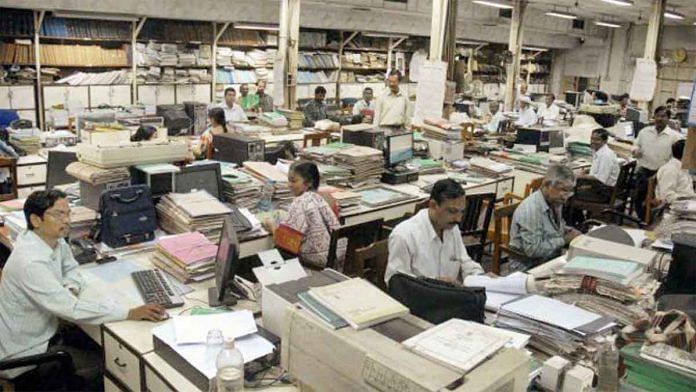You’re just so erratic sometimes, I don’t get it. You’re fine otherwise, but on some days, it’s like you’re bipolar or something.”
This is what my supervisor in a previous job had told me after working with me for one full year. On my first week on the job, I had sat him down and notified him about having Borderline Personality Disorder and informed him about its symptoms. But as was evident in that moment a year later, my superior seemed to have misconstrued my problems as some kind of a pity party I was trying to have.
Indian workspaces are ill-equipped, ill-informed, and frankly indifferent to mental health disorders. Even more dangerously, most employers see talking about mental health as a ‘fad’ among millennials and expect them to just push through and work.
“We didn’t complain so much in our days,” is offered as a counter to any mental health issue.
Also read: Bosses can help reduce employee stress and burnout
What is BPD
I was diagnosed with Borderline Personality Disorder (BPD) two years ago, a form of Post-Traumatic Stress Disorder whose symptoms are emotional instability, feelings of worthlessness, insecurity, impulsivity, impaired social relationships. This often leads to substance addictions, self-harm, and in some cases suicide attempts.
It mostly affects victims of emotional, physical or sexual abuse, people who grew up in abusive houses and or were exposed to violence as a child. Lakhs of Indians suffer from it every year. And yet, the illness is mostly absent from the vocabulary of Indians and is one of the most stigmatised mental health disorders.
For someone with BPD, it’s far more difficult to handle the loss of a loved one, rationalise rejection or get out of toxic relationships, if I were to uncharacteristically oversimplify the illness.
Also read: Facebook’s online workers are sick of being treated like bots, but Zuckerberg isn’t worried
Not a rare case
My illness is not rare, just as mental illnesses are not rare at a workplace. According to a study, more than 42.5 per cent of working Indians suffer from some or the other form of mental or anxiety disorder. This is due to long work hours, competitive and toxic work environments and low salaries.
Yet, of the 11 lakh registered companies in India, only 1,000 have a structured Employees Assistance Programme for mental health.
Refusing to accept mental health patients in offices or taking them seriously affects corporate India too. The global economy suffers a loss of $1 trillion a year due to depression and anxiety. It’s appalling to see the lack of effort, awareness and redressal in India Inc, especially when this is the most depressed country in the world.
On many days, I’ve been stuck in cars or boardroom meetings with senior colleagues who sit and laugh about ‘millennial snowflakes’ and their inability to cope with life, using words like ‘depression’ and ‘bipolar’ as a front. These are the same people who have handed over a doomed, deeply-polarised, over-populated and expensive world to our generation.
Most employers see mental health as a choice, which should be kept in the drawer of your house before leaving. And even if you do get some time to address your mental health, there aren’t nearly enough mental facilities in India.
According to WHO, 20 per cent of the population suffers from a mental health disorder with only roughly 4,000 mental health experts in the country.
Also read: Dropping like flies: The rise of workplace burnout and how to tackle it
Round peg in a square hole
Suffering from a mental illness affects your interpersonal relationship at the workplace. You won’t necessarily make healthy bonds or attachments if your brain tells you everyone hates you whenever you talk to someone, every single time.
Every small or big failure sends me on a downward spiral that I have to talk myself out of. With BPD, your brain functions like a toxic parent who’s constantly telling you’re not good enough no matter how hard you try. Your success becomes chance and failure can culminate into suicidal thoughts.
In such situations, I’ve found myself completely ill-equipped and at a loss for ways to inform people about my condition. Sometimes, I fear I will get fired and not get another job. I fear being accused of using BPD as an excuse whenever I act out. But what I fear the most is opening up to a colleague again, only to be called weird, bipolar and crazy a year later.




Keep an eye
“Keep an EYE” to be read as
Keep an “Eye on Your Emotions” (?)